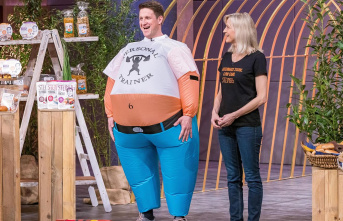Sims, a North Carolina 28-year old, had to confront her heroin addiction like no other when she was reported to child protective service last summer.
She said, "None of my relapses has had a consequence except this last one."
Social workers encouraged Sims to seek rehab. However, none of the services provided was adequate as most substance abuse programs view pregnancy as high-risk. Sims discovered UNC Horizons through word of mouth. This program treats substance abuse disorders at the University of North Carolina's School of Medicine and is specifically for mothers and pregnant women.
Sims stated, "I needed somewhere that would accept and take care of my pregnancy," "Horizons saved me from certain death."
Experts believe Horizons programs, which allow children and their mothers to remain with them during substance abuse treatment or mental health treatment, provide the full-spectrum rehabilitation needed to decrease the number of babies being born to mothers who are struggling with drugs.
There has been an increase in the movement of state social workers and health care professionals to support mothers who are sober. This is rather than punishing their drug use with the death of their children, which can have long-lasting consequences. Experts fear that such programs will be more rare in the world rehab and that there will be fewer successes during the current pandemic.
To assess the impact of the pandemic on families, the Associated Press asked for the number of children who were exposed in each state to drugs between 2018 and 2020. It found that child welfare agencies are still struggling to understand the issue of pregnant women using drugs.
While several states have made policy changes over the past three years to penalize these women instead of penalizing them, 31 states could not or refused to provide data that would show how many more children were exposed to drugs during this pandemic. This is despite the fact that there was a federal mandate to provide these numbers. It shows how far we have to go.
Horizon's executive director Hendree Jones said that she has seen an increase in deaths and relapses in women who had been stable in recovery prior to the pandemic. This is an anecdotal trend similar to other populations dealing with drug abuse in the midst of the American upheaval over the past year.
Horizons had to reduce its capacity due to social distancing. The center has had to wait for 40 beds since its inception. But, it is now down eight places because it cannot have roommates share its apartments. Jones is concerned about the women that the program hasn’t been able serve.
Jones stated that substance abuse has risen in severity since the pandemic. That's scary.
According to the National Center on Substance Abuse and Child Welfare, this is despite a fourfold increase of opioid use disorders in pregnant women over the past 20 years.
In 2016, the federal government required states to monitor and treat drug-exposed infants. States were also allowed to repurpose foster care money in 2018 to keep families together. The pandemic has disrupted a lot of this work.
Dr. Stephen Patrick is the Vanderbilt Center for Child Health Policy director and a leading national expert on drug-exposed children. "States are confused about what should be done, and they miss the bigger picture."
The new policies are being interpreted by child welfare agencies. The Guttmacher Institute, an organization that tracks the state laws regarding substance use during pregnancy and supports reproductive rights, says that drug use during pregnancy in about half of the country is considered child abuse.
In recognition that the 1980s crack baby scare was too severe and divisive, more states are moving away from the practice of removing babies.
Research has shown that removing babies from their mothers is not a good idea. This is especially true if the baby does not show any signs of being affected by drugs.
Jones stated that "punishment does not make anyone a better mother, or make them want less." It actually makes it worse. It's possible to relapse if children are taken from their mothers.
This reality is a reality for pregnant women. The first step to overcoming it is to seek help.
Findtreatment.gov is an online directory maintained by the U.S. Department of Health and Human Services. It doesn't have a search function that allows you to look for gender or pregnancy.
The Guttmacher Institute stated that while 19 states have or are funding drug treatment programs for pregnant mothers, only 10 states provide protection against discrimination in publicly funded rehabilitation programs.
Sims went to Horizons rehab and had a healthy baby boy in April. It was safe and free from judgment, Sims said. She also felt that it allowed her to spend time with her most important motivation -- her son.
Sims stated, "Once I had the child, I felt that I had purpose again."










